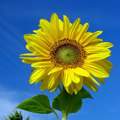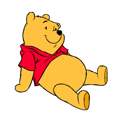Was für einen Tee trinken die Engländer 😅?
Also in England sagt man ja immer “Do you like a cup of tea” und es ist ja bekannt, dass Engländer sehr gerne morgens Tee trinken. Aber ist das eventuell wie in Polen, dass sie nur schwarzen Tee trinken oder welchen trinken sie eher ? Trinken sie auch Früchtetee? Und warum sind Engländer überhaupt so besessen auf Tee ?😅
13 Antworten

In GB trinkt man nicht nur morgens, sondern auch tagsüber Tee, insbesondere am Nachmittag den "Five-o'clock-tea".
Getrunken wird "schwarzer" Tee unterschiedlicher Provenienzen, z.B. Earl Grey, Darjeeling, Assam u.v.m.
Teetrinken wurde in England durch die Kolonisierung Indiens populär. Ähnlich entstand auch die ostfriesische Teekultur, als im 17. Jahrhundert durch die niederländische Ostindien-Kompagnie Tee nach Holland und Friesland gelangte.

Zum Großteil wird Schwarztee in Großbritannien oder besser gesagt im ganzen Commonwealth getrunken.
Bevorzugste Sorten die man mehr oder weniger überall bekommt sind Earl Greay und Darjeeling. Aber es gibt natürlich auch jeden Menge andere Sorten.
Aufgebrüht wird er Tee in der Regel recht kurz. Also kein stundenlanges köcheln wie zB bei den Russen.
Getrunken wird der Tee entweder mit einen Spritzer Zitrone oder mit Milch oder für die Naturalisten eben pur. Gesüßt je nach Vorliebe.
Warum die Briten gerne Tee trinken? Ich glaube, das wissen nichtmal die Briten selbst. Ich glaue, es ist einfach etwas dass sie sich über Generationen angeeignet haben und das gewohnte Ritual gibt einfach Genuss, Sicherheit und Ruhe.

Der Teekonsum geht in England stark zurück. Vor Jahrhunderten hat England die grösste Schiffsflotte und importierte viel Tee aus Indien und China. Darum war dort der Tee etwas billiger als in anderen europäischen Ländern, aber trotzdem so teuer, dass sich nicht alle Tee leisten konnten. Tee wurde besonders bei "feinen Leuten" ein Wohlstandsbeweis, dass dann später, als die Preise sanken, sich "Alle" gönnen wollen. Durch die Globalisierung und Zeitgeschmack der jungen Menschen verliert der Tee (fast nur "schwarzer" Tee) langsam an Bedeutung.

Ja, schwarzen Tee trinken sie. Eine Tradition

Hallo,
ganz beliebt ist Earl Grey und v. a. mit Milch.
Im Buch Test your Vocabulary 1 (Penguin English Guides, Eighth Impression 2008) heißt es:
Tea is more popular than coffee in Britan. The British drink 185 million cups o tea per day and 77 % of British people drink tea regularly.
Aber wusstest du, dass tea (auch) ein kleines Abendessen, eine kleine abendliche Brotzeit ist?
Zur Erklärung schau mal unter folgendem Link nach:
www.bbc.co.uk/worldservice/learningenglish/radio/specials/1535_questionanswer/page2.shtml
Hier der relevante Absatz:
And the final word is tea. Now of course this is a drink, like tea and coffee, but it can also be a light evening meal. I think this word is often used in families, particularly with their children. "It's tea time", "It's time for tea!" This means their small evening meal.
Ob es tea, dinner oder supper heißt, ist auch abhängig von der sozialen Stellung.
Hier ein weiterer interessanter Link dazu: putlearningfirst.com/language/12dial/dinner.html.
Ganz toll und witzig (auf Deutsch) erklärt, wird das auch im Kapitel Five o'clock tea oder Was hat der Tee mit dem Abendessen zu tun? des Buches What's for tea?
Englisch, wie es nicht im Schulbuch steht von Claudia Holt (Heyne)
Und folgendes hat George Mikes in How to be an Alien über TEA geschrieben:
… the trouble with tea is that originally it was quite a good drink. So a group of the most eminent British scientists put their heads together, and made complicated biological experiments to find a way of spoiling it. To the eternal glory of British science their labour bore fruit. They suggested that if you do not drink it clear, or with lemon or rum and sugar, but pour a few drops of cold milk into it, and no sugar at all, the desired object is achieved. Once this refreshing, aromatic, oriental beverage was successfully transformed into colourless and tasteless gargling-water, it suddenly became the national drink of Great Britain and Ireland - still retaining, indeed usurping, the high-sounding title of tea. There are some occasions when you must not refuse a cup of tea, otherwise you are judged an exotic and barbarous bird without any hope of ever being able to take your place in civilised society. If you are invited to an English home, at five o'clock in the morning you get a cup of tea. It is either brought in by a heartily smiling hostess or an almost malevolently silent maid. When you are disturbed in your sweetest morning sleep you must not say: 'Madame (or Mabel), I think you are a cruel, spiteful and malignant person who deserves to be shot.' On the contrary, you have to declare with your best five o'clock smile: 'Thank you so much. I do adore a cup of early morning tea, especially early in the morning.' If they leave you alone with the liquid, you may pour it down the washbasin.
Then you have tea for breakfast; then you have tea at eleven o'clock in the morning; then after lunch;then you have tea for tea; then after supper; and again at eleven o'clock at night. You must not refuse any additional cups of tea under the following circumstances: if it is hot; if it is cold; if you are tired; if anybody thinks that you might be tired; if you are nervous; if you are gay; before you go out; if you are out; if you have just returned home; if you feel like it; if you do not feel like it; if you have had no tea for some time; if you have just had a cup. You definitely must not follow my example. I sleep at five o'clock in the morning; I have coffee for breakfast; I drink innumerable cups of black coffee during the day; I have the most unorthodox and exotic teas even at tea-time. The other day, for instance - I just mention this as a terrifying example to show you how low some people can sink -1 wanted a cup of coffee and a piece of cheese for tea. It was one of those exceptionally hot days and my wife (once a good Englishwoman, now completely and hopelessly led astray by my wicked foreign influence) made some cold coffee and put it in the refrigerator, where it froze and became one solid block. On the other hand, she left the cheese on the kitchen table, where it melted. So I had a piece of coffee and a glass of cheese"
:-) AstridDerPu